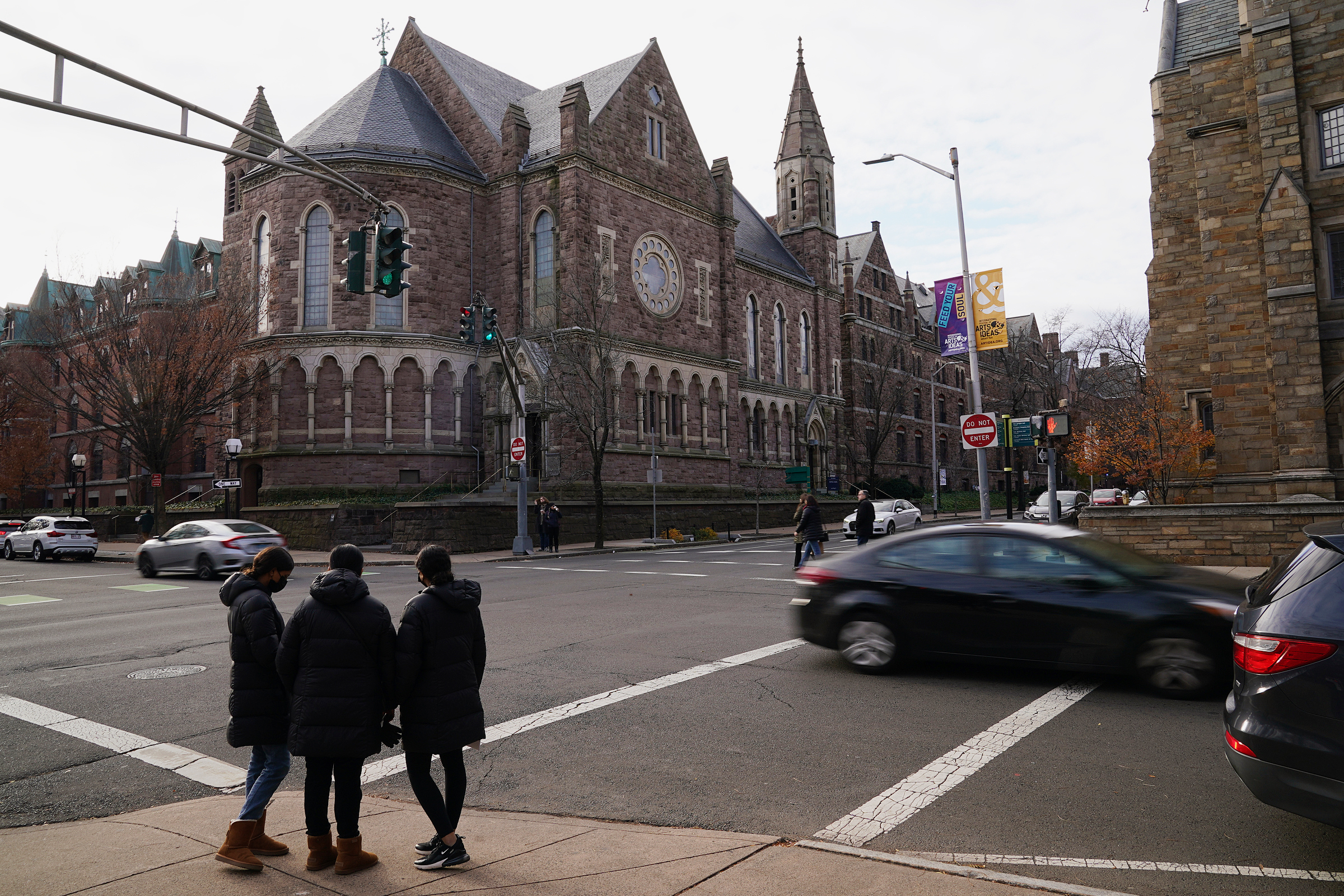In the election aftermath, religious leaders respond with faith
The News spoke to religious leaders at the University about the presidential election’s outcome and paths forward.

Tim Tai, Senior Photographer
The time the country is living through requires much “discernment,” Reverend William J. Barber II believes.
In a Wednesday interview with the News, he expressed his concern about how President-elect Donald Trump’s policies do not align with the moral values that he lives by.
“We don’t have the luxury to quit,” Barber said.
Barber, one of America’s most well-known religious leaders, directs Yale Divinity School’s Center for Public Theology & Public Policy. The center aims to equip future leaders with a moral framework.
He has worked in pastoral leadership and public ministry for three decades and has given keynote addresses at hundreds of national conferences, including the 2016 Democratic National Convention and the 59th Inaugural Prayer Service for President Joe Biden and Vice President Kamala Harris.
“We don’t believe God is a Democrat or Republican. We have to look at it through the lens of our deepest moral values,” Barber said. “Our deepest moral values which are outlined in the scriptures are justice and love and truth and mercy, and irregardless of how our nation votes, from a moral and theological standpoint, a majority vote does not mean right.”
Barber expressed disappointment that American politics has become more focused on candidates’ rhetoric than on addressing the “deeper moral questions.”
He cited Isaiah 10 as one of 2000 scriptures in the Bible informing his theology which says “Woe to those who make unjust laws, to those who issue oppressive decrees, to deprive the poor of their rights, and withhold justice from the oppressed of my people, making widows their prey and robbing the fatherless.”
Critiquing policy from a theological perspective
In Barber’s view, the role of theology is to be a critic of the state and to question how public policy might reflect the values of justice.
“When you put your hand on that Bible, Republican or Democrat, Independent, male or female, you swear to establish justice. You swear to promote the common defense and promote the general welfare and to ensure domestic tranquility,” Barber said. “You don’t swear to create policies that are unjust. You don’t swear to create division.”
Trump has received support from many Christian nationalists, which Barber calls a “form of modern-day heresy.” Barber critiqued Trump’s policy on minimum wage and the president-elect’s use of xenophobic and racialized language.
Jonathan Wilson-Hartgrove, another religious leader at the Center for Public Theology & Public Policy, views Trump’s victory as a “triumph” of Christian nationalism’s tactics. Wilson-Hartgrove views his role as a religious leader as essential at this moment.
“In a moment when Christianity has been weaponized by a political movement, my job as a religious leader is to cultivate faith communities where the radical love ethic of Jesus inspires people to work with their neighbors for justice,” Wilson-Hartgrove wrote.
Hopes for the future
The Center for Public Theology & Public Policy is hosting a workshop on Nov. 18 on “moral fusion organizing,” which Wilson-Hartgrove described as “a tradition that has been practiced by people who refused to give up even when it seemed like they were losing ground politically.”
Rabbi Alex Ozar, Campus Rabbi at the Slifka Center for Jewish Life, also expressed hope and emphasized a desire for people to come together and talk to each other after the election.
“I hope we’ll all continue to learn how to really talk to each other, working through our differences and really holding each other to account,” wrote Ozar. “We need to build trust, one mutually vulnerable conversation at a time.”
Wilson-Hartgrove believes it’s important to be honest about disappointments, as disappointment can realign “shared hope,” he said.
Students should study, “be concerned,” and then “turn all of that into continued action,” Barber said.
The Center for Public Theology and Public Policy was established in 2022.







